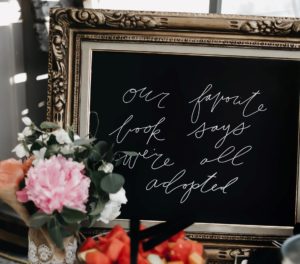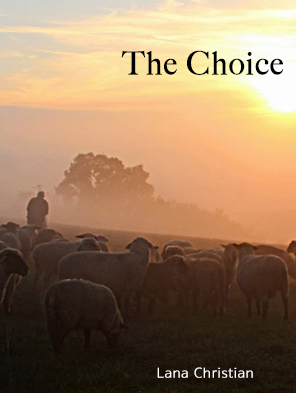
A church misconception is that if you’re “godly,” your faith won’t falter. I beg to differ.
Take the book of Ruth, for example.
Elimelech and Naomi were a godly Hebrew couple that lived in Bethlehem (which means “house of bread”). They had already endured years of famine when their two sons were born. Their names allude to ongoing malnourishment: “Mahlon” means “sick;” “Chillon” means wasting away.”
What can wound parents more than seeing their children suffer?
We don’t know how Elimelech tried to provide for his family or whether he reached out to his Bethlehem relatives for help. The point is that a mindset of scarcity can blind us to options still available to us.
Somewhere along the way, Elimelech starts to trust his instincts more than he trusts God. While his relatives remain in Bethlehem, Elimelech relocates his family to Moab, a pagan land southeast of Judah.
Life in Moab doesn’t turn out as planned. Elimelech dies. Even though Mahlon and Chillon grow to manhood and marry, they die at a young age—before their wives bear any children.
Life breaks Naomi spiritually, emotionally, and financially.
Faltering faith
Ruth 1:6 says Naomi decides to return home because “she heard God had attended to His people by providing them with food.” Read that closely. On the surface, it appears to be a bid for physical survival. But Moab hadn’t been ravaged by famine, so Naomi must have had other motivations for leaving.
I think she was trying to regain her faith. (Can you relate?)
The book of Ruth is set in the latter years of the judges, a 350-year, less-than-stellar period in Israel’s history. History and archeology confirm the time frame and the famine.
When Naomi hears Bethlehem once again has bread, it rekindles a spark of hope that God might still care about her. Naomi’s unspoken reason for returning to Bethlehem is to recapture her faith in a God who cares.
Naomi returns to Bethlehem broken, a vulnerable immigrant. She tells her neighbors, “I went away full, but the LORD has brought me back empty.” Double ouch. Naomi blames God for her losses and doesn’t acknowledge what she still has—a daughter-in-law willing to help her.
Naomi is so tapped out that she doesn’t contact her relatives or mention them to Ruth. The most telling verse is Ruth 2:2. Even when Ruth respectfully asks her mother-in-law for permission to go into the fields to glean behind any reaper who would be kind enough to allow her to do so, Naomi still doesn’t suggest, “Go to Boaz’s field.” She simply says, “OK, go.”
Faith isn’t enough
Naomi initially leaves Ruth to her own devices: gleaning. The most public form of poverty. I can almost hear Naomi wonder, “Why keep the faith? My troubles haven’t changed—only my location.”
Author Beth Vogt recently blogged, “Some days my faith seems to make no difference to my circumstances. Nothing changes. My troubles are … still troublesome.” Vogt was speaking of herself, but the words suit Naomi to a “t.”
Running on empty sends roots of regret and sorrow deep into the soil of the present. If we remain rooted in either, we can’t sense God standing with us in our pain.
Friends, I can’t emphasize this enough: Faith alone doesn’t get us through life’s hardships. We all have limits to our faith.
Faith stretched to its limit questions God. There’s nothing wrong with that. But God doesn’t answer those questions. Why? He requires you to first answer His bigger-picture question: “Are you ready to move from questioning Me to trusting Me?”
To get through life’s hardships, you need trust that exceeds your faith.
That’s the difference between Naomi and Ruth. While Naomi struggles to regain her faith, Ruth trusts God, even though she knows relatively little of Him. Trust is faith in action.
Case in point: We don’t know until the last chapter of Ruth that Naomi had put Elimelech’s land up for sale. Its proceeds would buy food short term but would leave Naomi more bereft than before. Selling the land instead of leasing it or hiring people to work it would forfeit her only safeguard against abject poverty. Like Elimelech, Naomi’s scarcity mindset blinds her to other available options.
Thankfully, God intervenes big time. Boaz is kind to Ruth before he knows she’s a relative in need. Naomi’s closer relative bows out of the picture when he realizes Ruth is part of a package deal with the land sale. Boaz, a true kinsman-redeemer, acts in good faith and marries the foreigner. Ruth, who is proclaimed to be “better than seven sons,” becomes etched eternally in history in Jesus’ lineage.
Trust that God is closer than you can imagine
The distance between Bethlehem and Moab was about fifty-five miles. The hard journey circled the north and west side of the Dead Sea and wound through rough, mountainous terrain—at least a seven-day walk for Naomi. Her true journey back to God spanned more than twenty years. But God wasn’t fifty-five miles away all that time. He was—and always is—closer than your breath when you pray.
*******************************
All glory to God for His inspiration for this blog—through His Word and this incredibly powerful song, “The God Who Sees.” (This video was shot on location in the Holy Land. Its stunning footage includes the mountains Naomi and Ruth traveled over.)
Lord, thank You that You are closer than we dare believe. Thank You that You love us back to life again when our faith falters!
Never miss a post!





Powerful Lana! Your blog and video! Great Reminder that God not only sees but is Faithful! I love your one sentence.. Faith is trust in action!!
Glad it ministered to you, Diana! Praying others will see this message of “trust is faith in action” and gain encouragement from it.